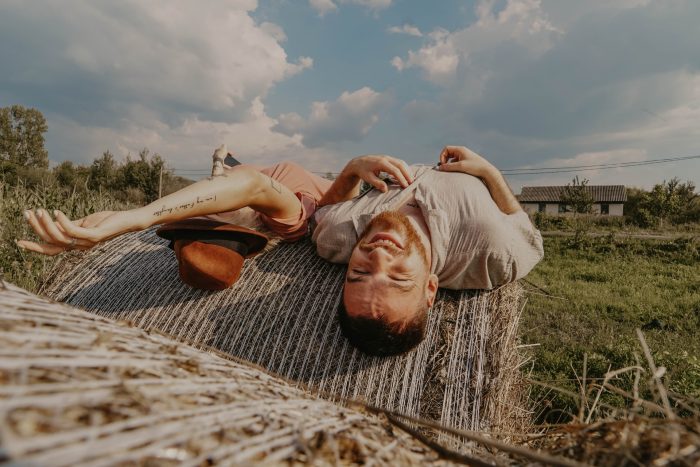I’m a big fan of to-do lists.
Writing down actions that I want to finish on a particular day, week, or month (or even, sometimes, during the rest of my life!) stops me worrying whether I’ll remember everything, and it’s a good way to make sure nothing gets forgotten.
I also like making lists about things I want to remember on an emotional or developmental level.
If I’ve had some kind of valuable life-lesson, I make a note of what I’ve learned so as to hopefully avoid having to repeat the same mistakes. It also helps if this list is created around a set of key concepts—ideally all beginning with the same letter! Somehow it sticks in my mind better that way.
This is my latest “life listicle” of things that help me feel emotionally healthy; I’m sharing it in the hope that it might be useful for you too.
Follow these six “Cs” for a mentally healthy life:
Caring
Probably the most important of all. Without giving and receiving care, nothing feels any good, and nothing you do will bring much good. It’s what makes it possible to trust and be trusted. Under this heading comes all kinds of “real” love—the kind that wants the best for the other people in our lives. It’s at the heart of what makes us human, in the best sense of the word. It doesn’t mean just doing what other people want us to do; by having compassionate boundaries we can look after ourselves and take care of others too. Caregiving is different from “caretaking,” which can be a kind of control, if we think we know best what another person needs.
Courage
In my view, number one is having the courage to live in a way that reflects and is true to what we believe is right. This implies having integrity, which is what gives life meaning and helps you become someone who can respect yourself and is worthy of being respected. It includes having the courage to love and also to take action in life—which is always a brave thing to do because it involves the possibility or failure and rejection. Courage involves taking risks—not being foolhardy but in a calculated and carefully managed way. It is at the heart of all human progress.
Creativity
This doesn’t mean having to be “artistic.” All humans have an innate need to contribute to the world in their own unique way, and each of us has to find out what that is for us. It may be a hobby or a vocation; it doesn’t matter as long as it lets us express our true self in a way that we and others can appreciate. There are many ways to share our natural creativity—whether it’s making up stories for our kids, cooking a great meal, or even telling a good anecdote with a bunch of friends. Don’t ever think, or let anyone tell you, that you’re “not creative.” It can’t be true, and it is the kind of self-limiting belief that can lead to heartache and depression.
Capability
Everyone can learn to be excellent at something. Acquiring and using skills brings deep satisfaction and enables us to make our best contribution to the world. There will always be those whose abilities are lesser or greater than our own. The main thing is to develop your own potential—and not to make comparisons of yourself with others. And teaching skills to others brings an extra level of pleasure. It takes effort and time to become good at something and a special level of effort to become excellent. Some people are destined to focus on one kind of activity and become the best at that one thing; others, like myself, prefer to dabble and become reasonably good at a number of different things. Neither approach is better; it’s whatever works for you.
Cooperation
It’s a universal human need to feel part of a community and to share activities with other people—even for people who like to have plenty of time alone. Working together brings a comforting sense of safety and belonging and also makes our efforts much more effective and rewarding. Human beings evolved to live and work in communities; it’s an innate art of our being. People who are isolated become depressed, and this is a particular risk when we get older.
In this era of highly technical communication, it’s possible to be superficially connected with a lot of people while having nothing in common with them. But used wisely, technology can also be a way for us to become connected with similar-minded people across time and space—and for that, it should be used and celebrated.
Compromise
None of us can have—or should have—exactly what we want. Other people who we relate to may have different needs, and this is where the art of compromise is so important. It means being sensitive to the needs of others while also being clear about what is nonnegotiable for us and sticking to our core values—a stance of “give and take.” Compromise shows mutual respect in finding the balance between not giving away so much that we lose our identity and being so rigid that we adopt a “my way or the highway” approach.
Ideally, it’s a two-way process, although the person with the least power in a situation may be expected to give up more. In a relationship, it’s about showing our partner we love them enough that what’s important to them becomes important to us too. If we feel unable to compromise on something, it’s important to take the time to explain why, and also be willing to listen to other points of view and take a different perspective when that feels useful. When there is no possibility of compromise, sometimes the best option is to walk away.
Curiosity
There are interesting things to observe and learn from in every situation, if we take the trouble to look for them. Life is endlessly fascinating when our eyes are open to all it has to offer, and it’s a tragedy that many of us seem to slip easily into a kind of permanent hibernation and go through our lives half asleep. Being semi-comatose can be a survival mechanism that helps get through a painful period, but if that becomes a habitual state, we will wake up one day to realise that we have let our life slip away—and there’s no way to get it back.
Approaching life with interest means that even difficult experiences become grist for the mill of our learning and growth, and it helps us see the positive in whatever happens—a stance that becomes a nicely self-fulfilling prophecy!
~
Please consider Boosting our authors’ articles in their first week to help them win Elephant’s Ecosystem so they can get paid and write more.







Read 0 comments and reply